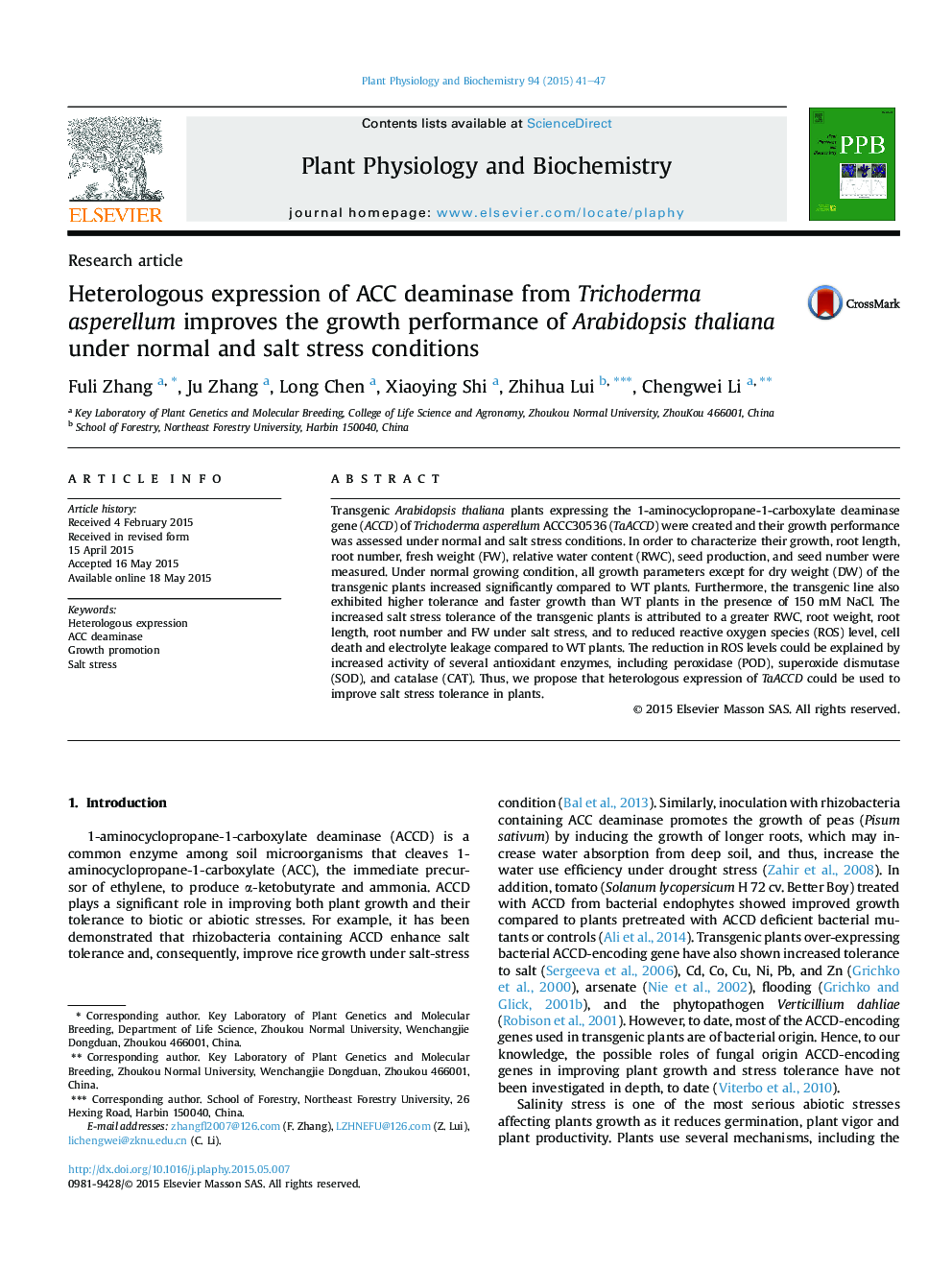| Article ID | Journal | Published Year | Pages | File Type |
|---|---|---|---|---|
| 2014907 | Plant Physiology and Biochemistry | 2015 | 7 Pages |
Abstract
Transgenic Arabidopsis thaliana plants expressing the 1-aminocyclopropane-1-carboxylate deaminase gene (ACCD) of Trichoderma asperellum ACCC30536 (TaACCD) were created and their growth performance was assessed under normal and salt stress conditions. In order to characterize their growth, root length, root number, fresh weight (FW), relative water content (RWC), seed production, and seed number were measured. Under normal growing condition, all growth parameters except for dry weight (DW) of the transgenic plants increased significantly compared to WT plants. Furthermore, the transgenic line also exhibited higher tolerance and faster growth than WT plants in the presence of 150Â mM NaCl. The increased salt stress tolerance of the transgenic plants is attributed to a greater RWC, root weight, root length, root number and FW under salt stress, and to reduced reactive oxygen species (ROS) level, cell death and electrolyte leakage compared to WT plants. The reduction in ROS levels could be explained by increased activity of several antioxidant enzymes, including peroxidase (POD), superoxide dismutase (SOD), and catalase (CAT). Thus, we propose that heterologous expression of TaACCD could be used to improve salt stress tolerance in plants.
Related Topics
Life Sciences
Agricultural and Biological Sciences
Plant Science
Authors
Fuli Zhang, Ju Zhang, Long Chen, Xiaoying Shi, Zhihua Lui, Chengwei Li,
